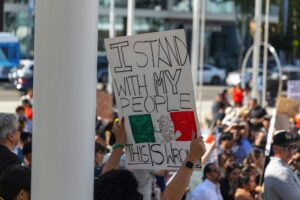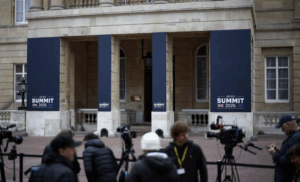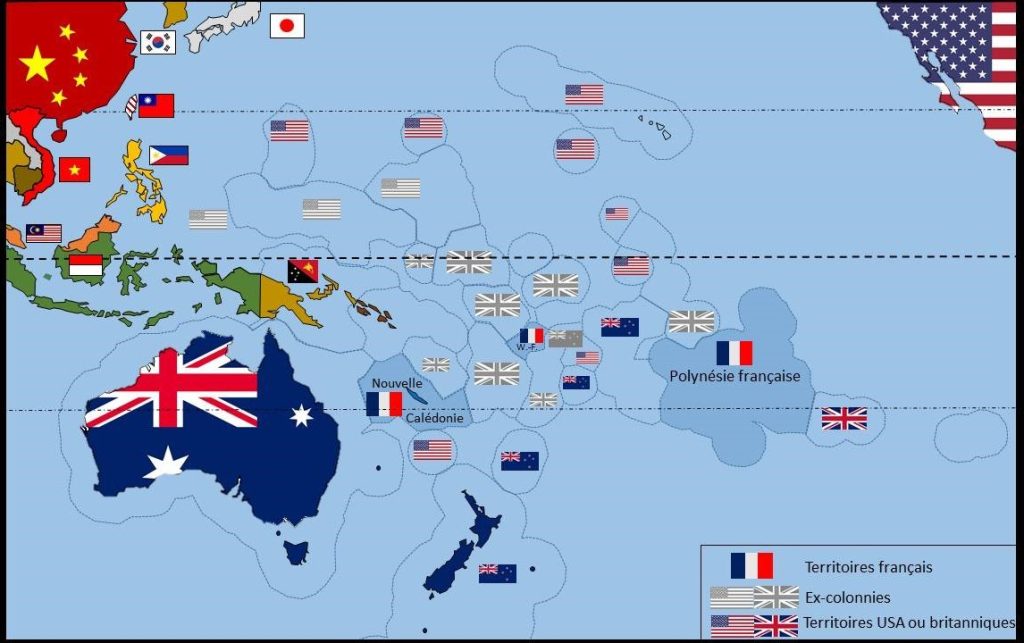The diplomatic crisis of the Australian submarines of 2021 has marked France. This affair has had the impact of discrediting it in the eyes of the world. However, its weight is not to be neglected thanks to its past in the region and its overseas communities where it remains an important player in the geopolitical game of the Pacific region. The emergence of Asian powers in the Pacific such as China, and the weight of the US military presence with its allies such as Japan, the Philippines or Australia, may leave France’s influence in doubt.
France: a European power in the center of the Pacific
With its overseas collectivities such as New Caledonia, Wallis and Futuna and French Polynesia, France has the second largest EEZ in the world. It is truly anchored in most corners of the Pacific. Even if its metropolis is a little more than 16 000 km away from Polynesia, its COMs render a marked sovereignty in the region.
From a military point of view, France is present. With the FANC (Armed Forces in New Caledonia) and the FAPF (Armed Forces in French Polynesia), France ensures a military and strategic point in the region. Moreover, with the multiplication of military operations such as Henri Brown, Heifara-Wakea or more recently the Pegasus and Pitch Black missions in 2022, France shows its potential of power projection. Despite the submarine crisis, Australia remains an important partner of France, thanks to their past as an ally in the two world wars.
The fact that it is a member of NATO (North Atlantic Treaty Organization), creates natural forms of partnership with Asian states around the Pacific. Like Japan, with whom it has carried out various military exercises such as Arc 21, which also brought together Australia and the United States. Even though France is part of NATO, it is still a bit more lax than the United States on the growing influence of China. President Macron is proving this with his recent diplomatic visit to China in early April, and his desire to form a « strategic autonomy » for Europe.
This bipolarity that reigns in the Pacific is frightening for island states. It allows France to act as a form of neutrality that allows states that do not wish to be swept up in this climate of tension to choose a side. France is part of several organizations focused on the military stability of the Pacific region, such as the South Pacific Defense Ministers’ Meeting or the Asia Pacific Chiefs of Military Intelligence Meeting. But also with organizations focused on regional development such as the SPC (Pacific Community). France is an asset for the European Union. It acts as a representative through its territories. The EU is an actor that helps the development of the Pacific, it is the 3rd donor and 5th partner of the Pacific with an exchange volume of 2.6 billion euros in 2019.
Asian competition in the Pacific
The Pacific space is becoming more and more important in recent years in terms of economy, trade, multilateral relations. And we are gradually witnessing a shift from the Atlantic to the Pacific as the center of globalization, especially in the Indo-Pacific and Southeast Asian spaces. In addition, the SinoTaiwanese conflict has been gaining momentum in recent years. These tensions are likely to degrade diplomatic relations and lead to negative consequences for island states. This conflict divides the Pacific in two, with China and its allies on one side and the United States and its allies on the other, forming the QUAD. QUAD is not an organization that directly confronts the Sino-Taiwanese conflict, but more specifically serves to curb China’s growing influence in the Indo-Pacific. It consists of the United States, Japan, Australia and India. France has increased its military exercises with QUAD members such as Arc 21, but it is not part of a military alliance in the region. France is a disputed power in the Pacific. The Australian submarine affair demonstrated this very well. The fact that Australia is breaking « the contract of the century » to the benefit of the United States and the United Kingdom, allows it to increase its ties in order to better face China. This proves that France lacks credibility in terms of power.
On the other hand, the COMs allow us to show a form of economic power. They remain territories that export raw materials such as nickel and cobalt, of which New Caledonia is one of the most productive, as is French Polynesia, which exports pearls and accounts for nearly 63% of its exports. Asian countries are the main trading partners with China, South Korea and Japan respectively. From the point of view of imports, according to the ISEE, New Caledonia in 2019 was 37.6% dependent on Asian countries such as China, Singapore and South Korea. The Asian states should not be seen as competitors, but also as partners (or potential partners). The example of Indonesia, which is part of ASEAN, and France of the EU, which allows both countries to have a more important relationship with both institutions. Not to mention that in 2022, Indonesia has purchased 6 aircraft in an order of 42 Rafale fighter aircraft to France, but also advancing the development of industrial cooperation focused on submarines.
France is a crucial actor in the Pacific. It is the State that represents the European Union in this region of the world, as well as the sovereign of the land in the Pacific. Its military presence in its COMs and the economic point of its territories allow it to enrich the Asian countries, thanks to the strong demand of imports, but also to supply the Asian countries with raw materials. With the Australian submarine crisis and the recent meeting between Emmanuel Macron and Xin-Jinping, and with the potential for a Sino-Taiwanese conflict looming, what role would France have if a conflict were to break out?










